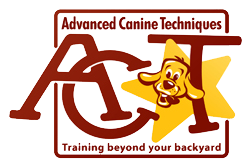A lot of people tell me I am lucky that I get to work with dogs every day and that they want to be a dog trainer.
Part of that is true. I love dogs and working with their owners, however, if you think that I just watch dogs play all day and teach a few classes, you would be very very wrong.
The enjoyable parts of my day are facilitating dog play, watching owners’ problem solve with their dogs and reach milestones! I love teaching classes and watching improved progress week to week.
When I am supervising a group of dogs, I am carefully watching dog body language and interrupting when or if play gets too rough. I decide when dogs need a break and rotate when needed. I also make sure they are going in and out of doors and crates politely, sharing water and toys and keeping play PG.
In addition to supervising dog play, I do a LOT of cleaning and poop scooping. Laundry, mopping, crate cleaning and disinfecting, washing dishes and toys and organizing training aids. On some days I also give a lot of dog baths and nail trims.
My day also includes a lot of driving and then there is the administrative work – texts, emails, voicemails and FB messages. And all of the work that is required of a small business owner (taxes, reports, marketing, accounting, orders, inventory, etc).
Many people think dog training is great because you can work with dogs all day, but, you also have to work with and help their owners. Just like dogs, people have different learning styles. We need to figure out if clients are light-hearted, more serious, structured, or laid-back. We do this in group classes and private lessons.
We also need to take the age and breed of dog into account. If you have a puppy, you might be exasperated, sleep deprived and frustrated. You are dealing with potty training, mouthing and various puppy shenanigans. You are excited but sometimes overwhelmed with all the responsibility.
If you have an older dog that is reactive or aggressive, you might be frustrated, angry, impatient, scared and sometimes in tears.
As a dog trainer, we need to provide strategies, help you feel in control, give you comfort and help you create a better relationship with your dog.
This can take a toll on us emotionally, physically, and mentally.
Sometimes we may give you feedback that is hard to hear but we know it is in the best interest of the dog. Sometimes we cry with our clients and sometimes we cry in the car on the way home. And sometimes we smile, laugh, and remember the best session the client ever had that day.
I have a lot of friends that are dog trainers, and we all have different personalities. It is important to find a trainer that fits your needs. And to realize that we are not a one size fits all.
We are constantly learning from one another and attending professional development conferences, seminars, and workshops. We strive to learn new dog training skills, coaching skills, teaching skills, small business skills and more. We are always learning.
I love my job, but the term compassion fatigue can definitely apply. My goal is to help educate, empower and encourage clients to be the best owners they can and speak for the dogs that can’t speak for themselves. The dogs have my heart and I wouldn’t change a thing.

